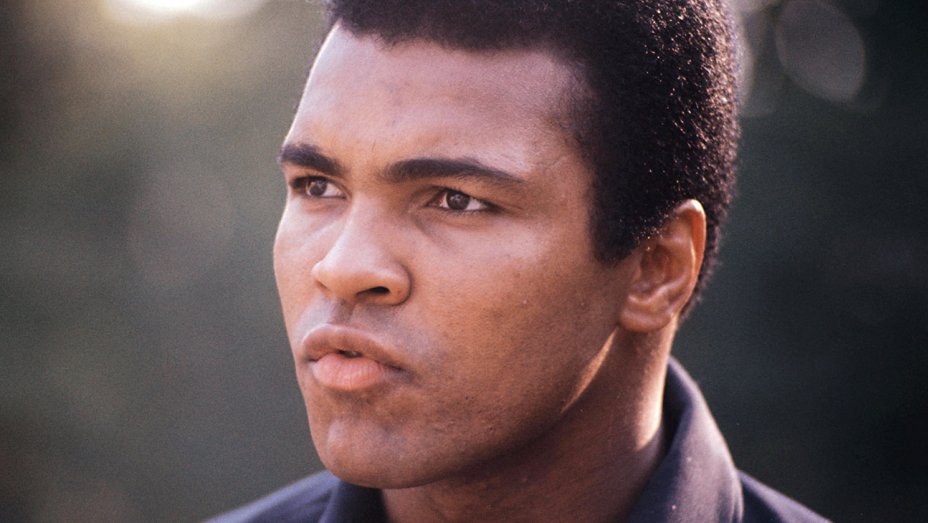I’m a sucker for a good sports documentary. I’ve seen every “30 for 30,” and have loved movies like “When We Were Kings,” “Hoop Dreams,” and “Tyson.” Great figures from sports are inherently cinematic, and there’s arguably no greater figure in sports history than Muhammad Ali, the subject of one of Tribeca 2019’s best documentaries, an experience that’s will play on HBO soon and is nearly as long as “Avengers: Endgame.” Cut up into two parts, “What’s My Name: Muhammad Ali” offers something even for those of us who know a great deal about the legendary athlete and civil rights leader by doing something incredibly simple: letting Ali tell his own story.
Director Antoine Fuqua (“Training Day”) directs “What’s My Name,” which consists of no talking heads or experts opining on the importance of Ali’s athleticism and courage, choosing to consist entirely of archival footage, and almost exclusively Ali himself telling his own story. As gifted a speaker as he was an athlete, just hearing Ali tell his own tale has a mesmerizing quality, even if you think you already know it. Ali’s image was so often filtered through people who reported on his life instead of raw and uncensored from the man himself, but “What’s My Name” corrects some of that, allowing for rarely heard insight into the major moments of Ali’s life from the man himself.
If there’s a flaw in “What’s My Name,” it’s that the archival approach leads to a rather flat chronological filmmaking style. Fuqua doesn’t seem particularly interested in tying events together—and using archival interviews exclusively makes that almost impossible—and so the result is a project that has a bit of the “then this happened, then this happened, then this happened …” structure that often makes bio-docs feel flat. The reason “What’s My Name” transcends that flatness is the vividness of Ali’s own voice and undeniable charisma. We get a lot of insight into several of his major fights in “What’s My Name” that hasn’t really been collected like this before, and any chance to spend a few hours with someone as essential to the 20th century as Muhammad Ali should really be taken.

A very different kind of sports documentary unfolds in “A Woman’s Work: The NFL’s Cheerleader Problem,” Yu Gu’s piece about the unfair business practices that have recently come to light via numerous lawsuits by cheerleaders against the NFL. The details of how horrendously cheerleaders for national teams have been mistreated for the last five decades are infuriating, but “A Woman’s Work” doesn’t have quite enough to offer beyond that. It’s the kind of piece that one can’t imagine anyone really disagreeing with in the way it presents rampant abuse of NFL employees, but the complete lack of hearing from anyone in power regarding the issue makes it feel somewhat flat. Cheerleaders have been treated awfully for years and now they’re doing something about it. While I’m 100% on their team, that doesn’t necessarily make for riveting filmmaking.
Yu Gu follows several cheerleaders from different programs, focusing mostly on a case brought against the Buffalo Jills, the cheerleading squad for the Buffalo Bills. “A Woman’s Work” reveals decades of simply grotesque practices from the fact that they don’t pay the cheerleaders until the end of the season—forcing many to buy their own equipment and supplies all year long—to the simple idea that they don’t consider cheerleaders employees (so they can get away with more workplace mistreatment). Sure, they are all over the NFL websites and raise money for teams through fundraisers and have to uphold that mythical NFL image, but they’re not employees. Sure.
It’s not that every documentary needs to present both sides of an issue—the other side of this issue isn’t really worth presenting, and only heard intermittently through awful callers to awful sports radio programs—but “A Woman’s Work” isn’t interesting enough formally to get over the fact that it doesn’t present much new material after its first ten minutes. It’s a much stronger episode of something like “E:60” than it works as a feature film. Although if it makes people think twice about how hard cheerleaders have to work every football season, it has probably done its job.












